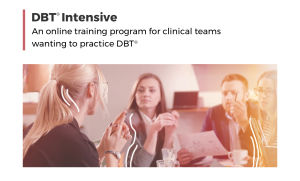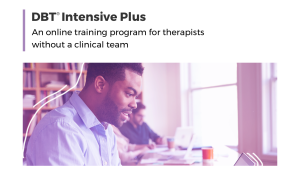Description
This product will be available for purchase until Aug 23, 2019. Learn more about why we are sunsetting this product, and don’t miss the opportunity to complete this course before it’s gone!
Anxiety disorders are estimated to affect 28% of the population over a lifetime. Approximately 75% of individuals who receive exposure therapy experience a significant improvement in anxiety. Only about 25% of clinicians have received training in exposure therapy for anxiety disorders.
In this section:
- Course Features
- Course Objectives
- Technical Requirements
- Course Keys
- Extensions
- Special Pricing
- Continuing Education
- Expert Endorsements
- About the Developers
Course Features
- 35 Simulated Client Sessions for 8 hours of hands-on practice
- 49 Videos of Exposure Experts
- 4 Interactive eBooks* (224 page clinical guide)
- 33 PDF Summaries
*The term “eBooks” refers to interactive resources embedded in the course that provide an overview of the principles and procedures of exposure therapy. The eBooks are only accessible within the course and cannot be saved or printed.
Expand Your Practice
Clinicians can expand their practice by developing the foundational skills necessary to treat panic disorder, social anxiety, PTSD, OCD, compulsive hoarding, generalized anxiety disorder, specific phobias, and agoraphobia.
Immerse Yourself
Enter an interactive therapy environment and learn by doing as you treat six virtual clients with a range of anxiety disorders. Help them overcome their fears at an airport, restaurant, mall, home, and even a motorcycle store!
Vital Competency
Harness the power of exposure therapy to significantly enhance your clinical practice. Apply these principles to deliver a diagnosis-specific treatment protocol or effectively treat problems caused by emotional avoidance.
The course is designed for a diverse audience, from B.A.-level providers with limited clinical training to M.D.s and Ph.D.s with extensive training and supervision. This course will translate well for anyone who treats clients with anxiety, including psychiatrists and psychologists, as well as master’s level social workers and counselors. In addition, primary care physicians and nurses will find the course helpful in their clinical work.
Course Objectives
- Describe the research data supporting the efficacy of Exposure Therapies (ET)
- Orient a client to the rationale for ETs
- Address common inaccurate beliefs and myths about ET (e.g., that ET will make clients get worse and drop out)
- Describe the theory of fear maintenance
- Orient a client to the rationale and procedures of and conduct in vivo exposure, interoceptive exposure, and imaginal exposure
- Address common client objections to ET (e.g., low motivation, excessive anxiety)
- Describe the goals of ET (e.g., corrective learning, fear toleration)
- Help a client decide when is the appropriate time to end an exposure task
- Orient a client to the Subjective Units of Distress (SUDs) scale
- Assess and understand a client’s fears, including cues for anxiety, feared outcomes, and safety behaviors
- Create an effective exposure hierarchy
- Determine when to ‘push the envelope’ and when to assess that exposure tasks are excessively risky
- Plan an effective exposure task
- Address and troubleshoot common problems during exposure, such as over-engagement, under-engagement, and avoidance
- Describe the principles for debriefing exposure tasks with clients
- Assign and review exposure homework with clients
Technical Requirements
Computer Setup
- Windows: Make sure you are using a supported version of Windows — as of May 2016, that means Windows 7 or higher.
- Mac: Mac OS X 10.1 or higher is required to use these courses. We recommend running the latest version of Mac OS X (10.11). Upgrading to El Capitan is free, and that version will work on Mac computers introduced in 2009 and later.
- Display: A screen resolution of at least 1024 x 768 is recommended.
- Sound: Your computer must be able to play sound over speakers or headphones.
Internet
- Use a connection that offers a download speed of at least 4 Mbps.
Browser
- This course must be accessed with Mozilla Firefox.
Flash Player
- The interactive content of our courses is built using Adobe Flash Player. We strongly advise consumers ensure they are using the latest Adobe Flash Player. Adobe releases updates regularly, so this is something to check if the course isn’t running properly. It is a matter of technical security to keep your Flash Player up-to-date.
Notes
- This course will not work on tablets, eReaders, or mobile devices.
This course is not Section 508 compliant (Section 508 is a U.S. federal guideline for website accessibility for people with physical, sensory, or cognitive disabilities).
Course Keys
If you purchase two or more online training courses, we will provide you with a course key. We use course keys to help administrators distribute online training licenses to members of their staff. You will receive your course key with your order confirmation.
To learn more about how to use a course key, visit our tech support page.
Extensions
Customers who have already purchased this online course may extend their access to the content by 1-month increments. In order to do this, select “1-month extension” from the drop-down field above and complete your purchase through the shopping cart. Our staff must manually apply the extension to your account, so the extension will not appear immediately. We will mark the order as “Completed” once the extension has been applied.
Special Pricing
Groups of 11 or more: Receive 5 to 30 percent off your purchase, depending on your group size. Contact us for a group quote.
Student Rate: Students receive a 50 percent discount on online training. Proof of current student status is required (a photocopy of your student ID or your current class schedule). Please create a customer account on our website and email us the following:
- A copy of your proof of student status
- Which course(s) you would like to take
- The email address used for your Behavioral Tech account
We will set up a custom order, which you can complete through your new web account.
Professors: Professors who wish to use this course with their class will receive complimentary access and their students will receive a 50 percent discount on online training. Please contact us to set up your course preview today.
Email: support@behavioraltech.org
Phone: 206-675-8588
Continuing Education
Continuing education requirements vary by state. Please contact your state’s regulatory authority to verify if this course meets your continuing education requirements. Inquiries regarding CE for other disciplines not listed may be directed to Behavioral Tech at 206.675.8588 or via email at ce@behavioraltech.org. Eligibility for continuing education credit terminates one year after the expiration of your online course.
Alcohol and Drug Abuse Counselors: Behavioral Tech, LLC is approved by the National Association of Alcoholism and Drug Abuse Counselors’ Approved Education Provider Program, Provider Number 359. This activity is approved for 10.0 contact hours. After passing the Post-Test with a score of 80% or higher and completing the Evaluation Survey, our automated system will issue a CE Letter to the participant awarding Continuing Education credit.
Mental Health Counselors: Behavioral Tech is an NBCC-Approved Continuing Education Provider (ACEP™) and may offer NBCC-approved clock hours for events that meet NBCC requirements. The ACEP solely is responsible for all aspects of the program. Behavioral Tech has allocated 10.0 clock hours for this activity. After passing the Post-Test with a score of 80% or higher and completing the Evaluation Survey, our automated system will issue a CE Letter to the participant awarding Continuing Education credit.
Nurses: Behavioral Tech, LLC is accredited by the Accreditation Council for Continuing Medical Education to provide continuing medical education for physicians. Behavioral Tech designates this educational activity for a maximum of 10.0 AMA PRA Category 1 Credits™. Continuing Medical Education is accepted by the ANCC for nursing certification renewal. After passing the Post-Test with a score of 80% or higher and completing the Evaluation Survey, our automated system will issue a CE Letter to the participant awarding Continuing Education credit.
Nurses – CA: In accordance with the provisions of Division 2 Chapters 13 and 14 of the Business and Professions code, Behavioral Tech, LLC is approved as a Continuing Education Provider. Approval #PCE 1776. Course meets qualifications for 10.0 contact hours. After passing the Post-Test with a score of 80% or higher and completing the Evaluation Survey, our automated system will issue a CE Letter to the participant awarding Continuing Education credit.
Psychiatrists: Behavioral Tech, LLC is accredited by the Accreditation Council for Continuing Medical Education to provide continuing medical education for physicians. Behavioral Tech, LLC designates this educational activity for a maximum of 10.0 AMA PRA Category 1 Credits™. After passing the Post-Test with a score of 80% or higher and completing the Evaluation Survey, our automated system will issue a CE Letter to the participant awarding Continuing Education credit.
Psychologists: Behavioral Tech, LLC is approved by the American Psychological Association to offer continuing education for psychologists. Behavioral Tech, LLC maintains responsibility for the program and its content. Behavioral Tech, LLC has allocated 10.0 hours of CE within APA guidelines. After passing the Post-Test with a score of 80% or higher and completing the Evaluation Survey, our automated system will issue a CE Letter to the participant awarding Continuing Education credit.
Social Workers: Continuing Education Approval for Social Workers is on a State basis. We are approved providers through NASW, WA State chapter and some states consider this reciprocal. If your state is not listed below, it will be your responsibility to check with your licensing board to ensure they consider our providership through NASW, WA State reciprocal.
- Washington: Behavioral Tech, LLC has been approved for 10.0 hours of CEUs by the NASW Washington State Chapter. Certified Social Workers, Certified Marriage & Family Therapists, and Certified Mental Heath Counselors are eligible. Provider number 1975-166. After passing the Post-Test with a score of 80% or higher and completing the Evaluation Survey, our automated system will issue a CE Letter to the participant awarding Continuing Education credit.
- New York: Behavioral Tech SW CPE is recognized by the New York State Education Department’s State Board for Social Work as an approved provider of continuing education for licensed social workers #0040. This educational activity has been approved for 10.0 self-study hours. After passing the Post-Test with a score of 80% or higher and completing the Evaluation Survey, our automated system will issue a CE Letter to the participant awarding Continuing Education credit. Materials that are included in this course may include interventions and modalities that are beyond the authorized practice of licensed master social work and licensed clinical social work in New York. As a licensed professional, you are responsible for reviewing the scope of practice, including activities that are defined in law as beyond the boundaries of practice for an LMSW and LCSW. A licensee who practices beyond the authorized scope of practice could be charged with unprofessional conduct under the Education Law and Regents Rules.
Arizona, Connecticut, and Nevada do not offer online CE Training for social workers.
Expert Endorsements
“This is an absolute must for therapists wanting to learn the method of exposure therapy for anxiety disorders. The program doesn’t just give information but it actually teaches therapists how to structure and implement this highly effective treatment strategy. The presentation of the material is exceptionally clear, the interactive nature of the program keeps the learner fully engaged, and the information is up to date and comprehensive. This is an exceptional training tool for learning exposure therapy.”
– Michelle Craske, PhD, Professor of Psychology, Psychiatry, and Biobehavioral Sciences; Director, Anxiety Disorders Research Center at the University of California, Los Angeles
Author of Mastering Your Fears and Phobias, Mastery of Your Anxiety and Worry, and Mastery of Your Anxiety and Panic
“This comprehensive and interactive training tool goes far beyond textbooks and treatment manuals. Using a series of realistic case vignettes and superb computer graphics, clinicians are provided with clear, scientifically accurate, and clinically useful feedback in the delivery of exposure tasks. The full range of anxiety disorders and therapeutic tasks is represented. By the end of this course, therapists should possess the theoretical knowledge necessary for the optimal delivery of exposure therapy with their clients.”
– Brett Deacon, Ph.D., Associate Professor of Psychology; Director, Anxiety Disorders Research Laboratory at the University of Wyoming
Author of Cognitive-Behavioral Treatment of Panic Disorder: A Clinician’s Guide to Theory and Practice and Exposure Therapy for Anxiety: Principles and Practice
“We know that exposure therapy is one of the most effective therapies in the treatment of anxiety disorders. This tool helps clinicians understand and apply both the science and the art of doing exposure therapy well. What an excellent resource for therapists. The practice scenarios let you gain first-hand experience with a multitude of clients, allowing you to make common mistakes, showing you how to fix them, and rewarding you when you have done a task well. I know of no other resource that allows therapists this type of in-depth knowledge and skills-building before treating actual clients using exposure therapy.”
– Lori Zoellner, Ph.D., Associate Professor of Psychology; Director, Center for Anxiety and Traumatic Stress at the University of Washington
Scientific Council Member, Anxiety and Depression Association of America and Expert in Prolonged Exposure therapy for PTSD
“This is the most comprehensive web-based training program for exposure therapy that I have ever seen. Using case examples and a professional-looking and highly intuitive interface, you will learn step-by-step how to implement the most effective treatment for anxiety disorders. The course also provides outstanding feedback about your progress, which will keep you on track. This is sure to be of help to any clinician wanting to learn more about working with anxious and fearful patients.”
– Jonathan Abramowitz, Ph.D., Professor of Psychology; Director, UNC Anxiety and Stress Disorders Clinic at the University of North Carolina, Chapel Hill
Author of Understanding and Treating Obsessive-Compulsive Disorder: A Cognitive-Behavioral Approach and Exposure Therapy for Anxiety: Principles and Practice
“The Foundations of Exposure Therapies Online Training Course is marvelous. It lays out all the aspects of exposure therapy in a step-by-step, user-friendly, and accessible way so that the therapist new to exposure therapies learns how the many pieces fit together and does so in a manner that should reduce the many and often misplaced concerns that new therapists have about exposure. It is exceptional preparation for starting a course of exposure therapy with an anxious client. In fact, it is good exposure therapy for the activity of doing exposure therapy.”
– Richard Heimberg, Ph.D. Professor of Psychology, Director, Adult Anxiety Clinic at Temple University
Author of Managing Social Anxiety: A Cognitive-Behavioral Therapy Approach and Generalized Anxiety Disorder: Advances in Research and Practice
About the Developers
Chief Developer
Melanie Harned, Ph.D. from Behavioral Tech Research
Development Team
Linda Dimeff, Ph.D., Jake Zavertnik, and Kelly Chrestman, Ph.D., from Behavioral Tech Research
Expert Advisors
Jonathan Abramowitz, Ph.D., University of North Carolina, Chapel Hill
John Baer, Ph.D., University of Washington
Shawn Cahill, Ph.D., University of Wisconsin, Milwaukee
Michelle Craske, Ph.D., University of California, Los Angeles
Kristin Ellard, Ph.D., Boston University
Richard Heimberg, Ph.D., Temple University
Michael Otto, Ph.D., Boston University
Peter Roy-Byrne, M.D., University of Washington
Lori Zoellner, Ph.D., University of Washington




